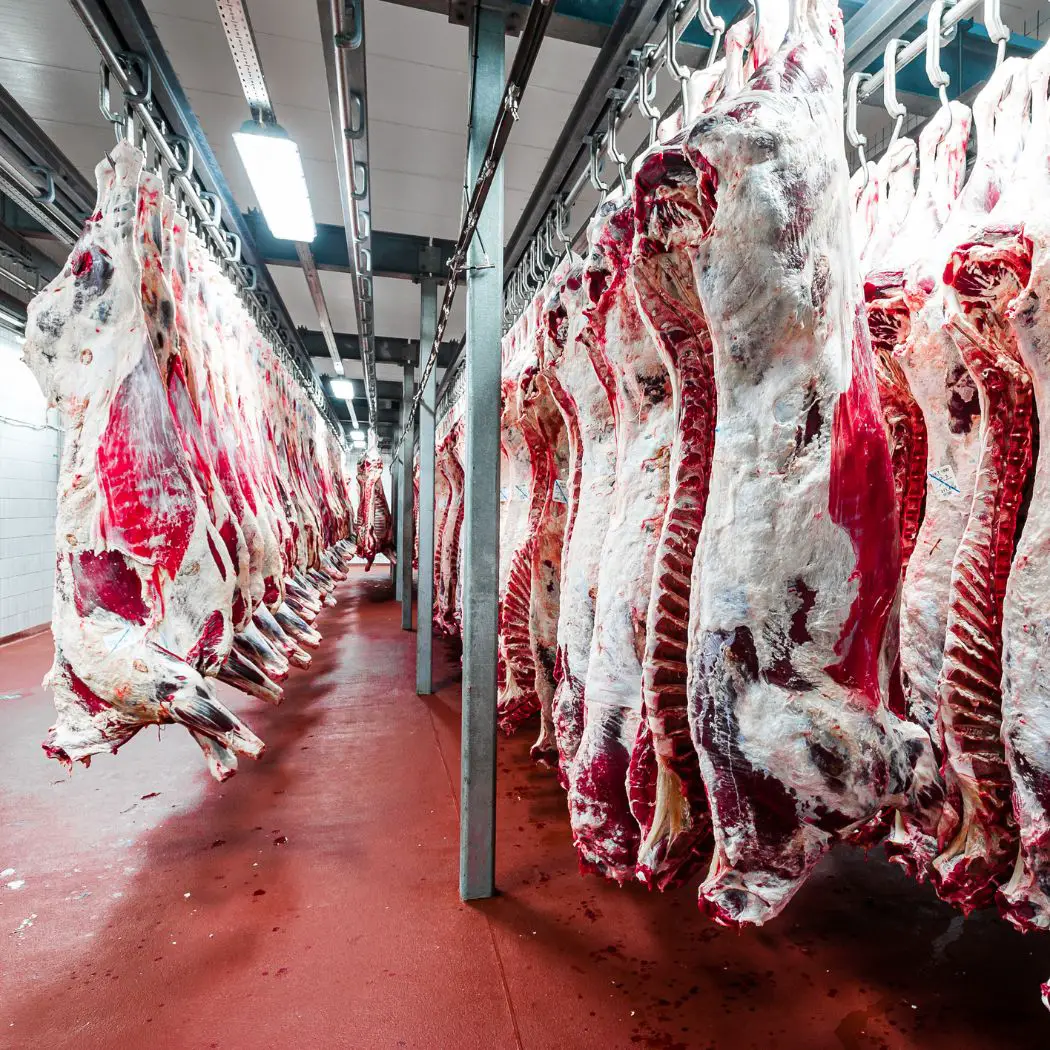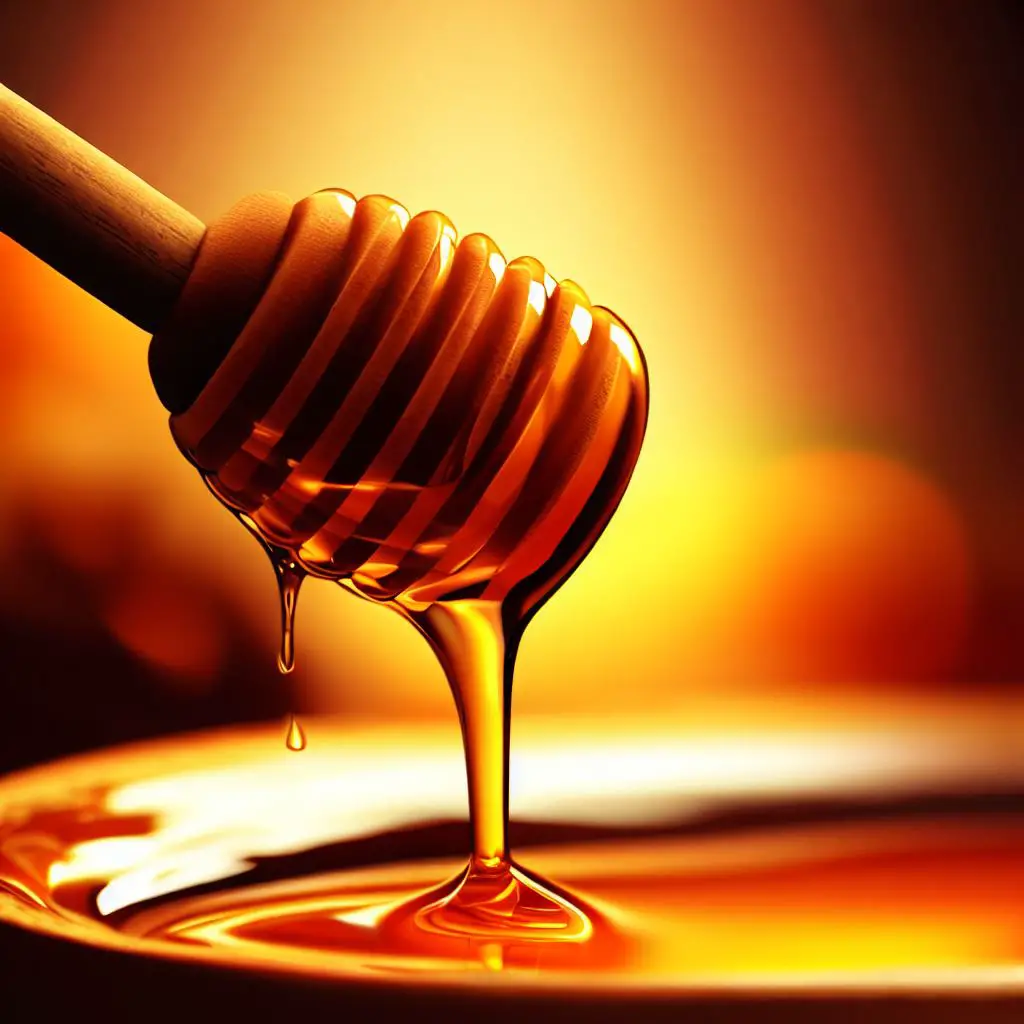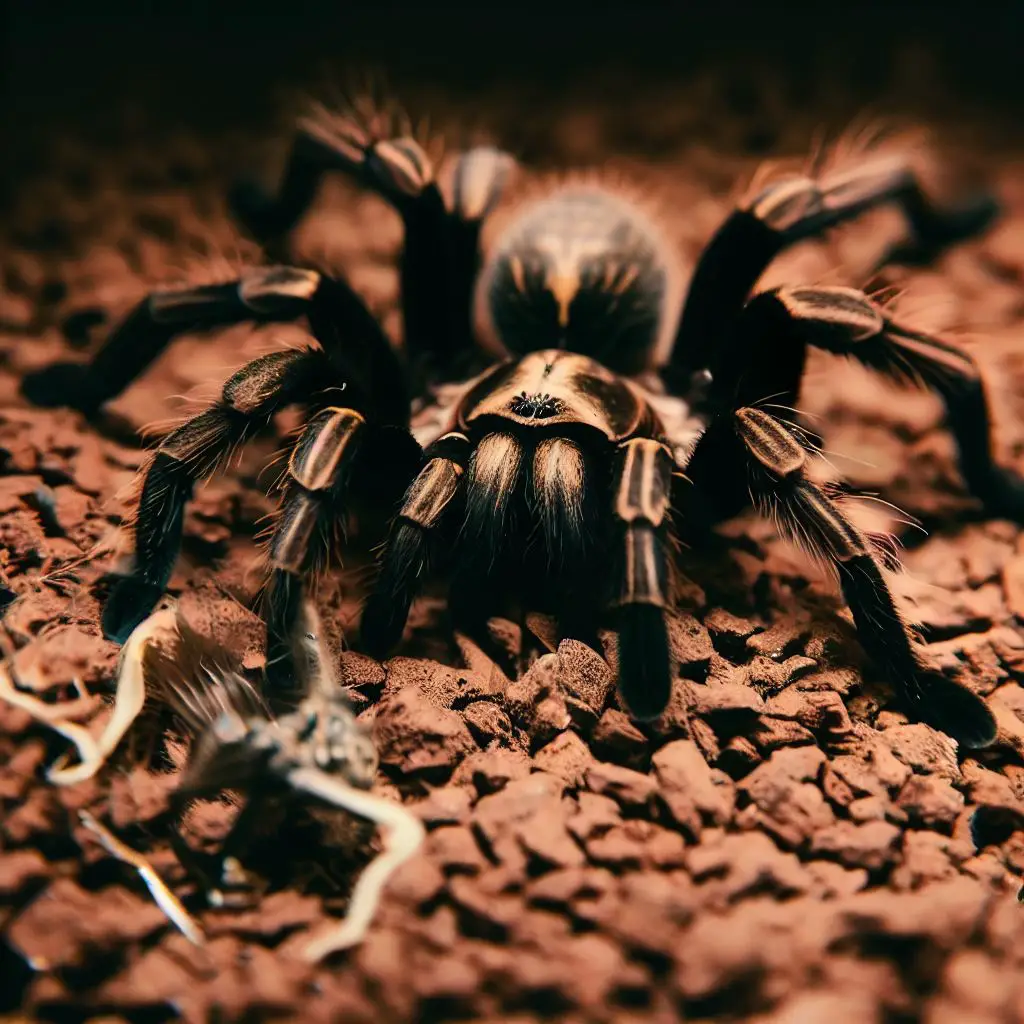Ferrets, as obligate carnivores, have specific dietary requirements that differ from other small pets. Understanding what to feed them is vital for their overall health and well-being. While guinea pig food may seem like an alternative option, it is important to assess its suitability for ferrets. Here’s what you need to know.
Ferrets normally eat a diet that primarily consists of high-quality, protein-rich sources such as raw or commercially prepared ferret food. These foods are specially formulated to meet their nutritional needs, which include high levels of animal-based protein and fat, as well as certain vitamins and minerals.
The question arises: can ferrets eat guinea pig food? Guinea pig food is primarily formulated for herbivorous animals and is rich in carbohydrates, fiber, and vitamin C. While both ferrets and guinea pigs require proper nutrition, there are significant differences between their dietary needs.
Guinea pig food typically contains plant-based ingredients such as hay, fruits, and vegetables that do not fulfill the nutritional requirements of ferrets. Ferret food, on the other hand, is specifically designed to provide the essential nutrients that ferrets need to thrive.
Feeding ferrets guinea pig food is not recommended as it may not meet their dietary requirements and could potentially lead to nutritional imbalances and deficiencies. It is crucial to provide ferrets with a balanced diet that is appropriate for their specific nutritional needs.
To ensure your ferret’s well-being, it is recommended to feed them a high-quality ferret food that is rich in animal-based proteins and fat. Supplement their diet with small amounts of fresh meat, such as chicken or turkey, and offer occasional treats or raw bones for chewing.
By adhering to proper nutritional guidelines for ferrets, you can maintain their health and provide them with the nutrients they need for a happy and active life.
Key takeaway:
- Ferrets require a proper diet: It is important to understand the nutritional needs of ferrets and provide them with a diet specifically designed for their requirements.
- Guinea pig food is not suitable for ferrets: Guinea pig food may differ in ingredients and nutritional composition compared to ferret food, and feeding ferrets with guinea pig food may potentially lead to health risks.
- Ensure a healthy diet for your ferret: Follow guidelines for a healthy ferret diet, including appropriate protein, fat, and nutrient content, and consult with a veterinarian for specific recommendations.
What Do Ferrets Normally Eat?
Ferrets are obligate carnivores and require a diet primarily of meat. They should not eat a vegetarian or plant-based diet.
In the wild, they eat small mammals like mice and rabbits. As pets, they can eat commercial ferret food formulated to meet their nutritional needs. These foods are high in protein and fat, essential for their health and well-being.
Some owners supplement their ferret’s diet with raw or cooked meat, like chicken or turkey. Avoid feeding ferrets foods high in carbohydrates, like fruits, vegetables, and grains, as these can cause digestive issues and nutrient deficiencies.
Ferrets have a high metabolic rate and may need frequent small meals throughout the day. Always provide fresh water for them to drink. By following these guidelines and providing a meat-based protein diet, you ensure your ferret thrives.
What Is a Proper Diet for Ferrets?
A proper diet for ferrets is crucial for their overall health and well-being. They require a balanced and nutritious diet to support their growth and development. Protein is an essential component of their diet, accounting for 30-40% of their daily intake. It is important to provide them with high-quality animal-based protein sources such as meat to meet their high protein requirements and promote muscle development. Ferrets have a high metabolism and need a diet rich in fats, which should make up around 15-20% of their diet, preferably from animal sources like chicken or turkey. Carbohydrates should be limited in their diet, as ferrets have a limited ability to digest them. It is recommended that less than 3-5% of their diet should consist of carbohydrates. While ferrets are primarily carnivores, small amounts of fruits and vegetables can be given as treats, but they should not comprise a significant portion of their diet. To keep ferrets hydrated, fresh and clean water should always be available to them, which should be changed daily to ensure cleanliness. Most ferrets do not require vitamin and mineral supplementation if they are receiving a balanced diet. It is advisable to consult a veterinarian to ensure all their nutritional needs are being met. A proper diet for ferrets should include high-quality protein, moderate fat, limited carbohydrates, and access to fresh water to ensure their optimal health.
Can Ferrets Eat Guinea Pig Food?
Can Ferrets Eat Guinea Pig Food?
Ferrets and guinea pigs have different dietary needs. Here are some facts to consider:
– Ferrets are obligate carnivores. Their diet should consist primarily of meat. Guinea pig food does not provide the necessary nutrients in the right proportions.
– Guinea pig food is high in fiber and vitamin C, which are important for guinea pigs but not essential for ferrets.
– Ferrets require a diet high in animal protein and fat. They should eat specially formulated ferret food or raw meat.
– Feeding guinea pig food to ferrets can cause nutritional deficiencies, digestive issues, and poor health.
It is crucial to meet ferrets’ specific nutritional requirements. If you have doubts or concerns about your ferret’s diet, consult a veterinarian specializing in exotic animal care. They can provide guidance on the appropriate diet for your ferret’s well-being.
Remember, a healthy and balanced diet is essential for your ferret’s overall health and happiness!
What Are the Ingredients in Guinea Pig Food?
The key ingredients in guinea pig food vary depending on the brand and type. The table below showcases the most common ingredients along with their respective percentages:
| Ingredients | Percentage |
| Timothy Hay | 30% |
| Fruits and Vegetables (carrots, apples, spinach) | 20% |
| Pellets (essential nutrients and vitamins) | 25% |
| Grains (oats, barley) | 15% |
| Seeds and Nuts | 5% |
| Legumes (peas, lentils) | 5% |
These ingredients play a crucial role in providing guinea pigs with the necessary nutrients for their well-being. Timothy hay aids in digestion and provides essential fiber. Fruits and vegetables offer a wide range of vitamins and minerals, while pellets serve as a concentrated source of nutrients. Grains, seeds, nuts, and legumes bring variety and energy to their diet.
It’s important to note that guinea pigs should not solely rely on guinea pig food for their dietary needs. Fresh water should always be available, and adding additional hay, vegetables, and occasional fruits can contribute to a well-rounded diet. Consulting a veterinarian is recommended to ensure specific feeding guidelines are met and nutritional requirements are fulfilled.
Are There Any Nutritional Differences Between Ferret Food and Guinea Pig Food?
Are there any nutritional differences between Ferret food and Guinea Pig food? Let’s compare them based on their protein, fiber, fat, and other nutrient content.
| Nutrient | Ferret Food | Guinea Pig Food |
| Protein | Ferret food has higher protein content, usually around 35-40%. | Guinea pig food has lower protein content, usually around 14-20%. |
| Fiber | Ferret food contains very little fiber, typically less than 3%. | Guinea pig food has higher fiber content, around 15-20%. |
| Fat | Ferret food has higher fat content, usually around 15-20%. | Guinea pig food has lower fat content, usually around 2-5%. |
| Vitamin C | Ferret food does not contain added vitamin C, as ferrets can produce their own. | Guinea pig food is supplemented with vitamin C, as guinea pigs cannot produce their own. |
Ferret food has higher protein and fat content, while guinea pig food has higher fiber content and is supplemented with vitamin C. These differences are due to the unique dietary requirements of each animal. Ferrets are obligate carnivores and require a diet rich in animal protein and fat. On the other hand, guinea pigs are herbivores and require higher fiber levels and vitamin C supplementation.
It’s important to provide each animal with the appropriate diet to meet their specific nutritional needs. Feeding ferret food to guinea pigs or vice versa can lead to nutritional deficiencies or health issues. Always choose the appropriate food for your pet based on their species-specific requirements.
Is It Safe for Ferrets to Eat Guinea Pig Food?
Is It Safe for Ferrets to Eat Guinea Pig Food? Ferrets should not consume guinea pig food.
It is essential to understand that the dietary needs of ferrets and guinea pigs differ significantly.
Ferrets necessitate a diet rich in animal-based protein, while guinea pig food is specifically designed for herbivores and contains ingredients that are unsuitable for ferrets.
Consuming guinea pig food can lead to nutritional deficiencies in ferrets, as it lacks the required fat content and is high in carbohydrates.
Digestive issues and weight gain can occur in ferrets that ingest guinea pig food.
To ensure the safety and well-being of your ferret, it is crucial to provide them with specially formulated ferret food that fulfills their nutritional requirements.
Can Guinea Pig Food Meet the Nutritional Needs of Ferrets?
Guinea pig food is not suitable for meeting the nutritional needs of ferrets. Ferrets have specific dietary requirements that differ from guinea pigs. It is important to provide ferrets with a balanced diet that includes high-quality protein, fats, and limited carbohydrates.
Ferrets require a diet mainly consisting of animal-based proteins, such as raw or cooked meat, to support their growth, muscle development, and overall health. Ferrets have a short digestive system designed to efficiently process meat-based diets. They cannot effectively digest carbohydrates, like those found in guinea pig food, which can cause digestive issues and nutrient deficiencies in ferrets.
Feeding guinea pig food to ferrets regularly can result in serious health risks, including malnutrition, gastrointestinal problems, and weight loss. It is crucial to provide ferrets with a balanced diet that meets their specific nutritional needs.
Fact: Ferrets have a higher metabolic rate compared to many other small animals, which means their dietary needs are quite different.
Are There Any Potential Health Risks for Ferrets Eating Guinea Pig Food?
Are there any potential health risks for ferrets eating guinea pig food? Yes, there are. Ferrets have different dietary requirements from guinea pigs, so feeding them guinea pig food can lead to nutritional deficiencies and negatively impact their overall health. Guinea pig food does not provide the necessary nutrients for ferrets’ optimal health, particularly the high protein diet they need. Unlike guinea pig food, which has lower protein levels, ferrets require animal-based protein sources. Guinea pig food may contain harmful ingredients for ferrets, such as high-calcium alfalfa, which can cause health issues like bladder stones in ferrets due to their lower tolerance for calcium. Some guinea pig food may contain unsuitable additives or fillers that can result in digestive problems and further harm ferrets’ well-being. Therefore, it is not recommended to feed guinea pig food to ferrets because of these potential health risks. Instead, ferrets require a specialized diet tailored to their specific nutritional needs, emphasizing high-quality ferret food for their overall well-being and to prevent potential health issues.
What Should You Feed Your Ferret?
Looking to provide the best nutrition for your furry ferret friend? In this section, we’ll dive into what you should feed your ferret, ensuring their optimum health and wellbeing. From essential guidelines for a healthy ferret diet to additional recommendations, we’ll explore the key factors that contribute to a balanced and nutritious diet for your adorable ferret companion. Get ready to discover the secrets of keeping your ferret nourished and content!
Guidelines for a Healthy Ferret Diet
– A ferret’s diet should primarily consist of high-quality commercial ferret food that meets their nutritional requirements. Look for brands formulated specifically for ferrets.
– Protein should be the main component of a ferret’s diet since they are obligate carnivores. Choose ferret food with a high percentage of meat or animal products.
– Give fruits and vegetables to ferrets as occasional treats in small amounts. They should not make up a significant portion of their diet.
– Ferrets need a moderate amount of fat in their diet. Look for ferret foods with healthy animal fats, like chicken or turkey fat.
– Avoid feeding ferrets foods high in carbohydrates, such as grains, as they can lead to obesity and other health problems. Ferrets have a short digestive system not optimized for processing carbohydrates.
– Always provide fresh and clean water for your ferret. Hydration is crucial for their overall health.
– Feed your ferret small and frequent meals throughout the day to mimic their natural feeding habits. They have a fast metabolism and need regular food intake to maintain energy levels and avoid blood sugar fluctuations.
– Consult with your veterinarian for specific dietary recommendations for your ferret, especially if they have any health conditions or special dietary needs.
Additional Recommendations for a Healthy Ferret Diet
Here are some additional recommendations for a healthy ferret diet:
1. Provide a balanced and complete diet: Ferrets require a diet high in animal protein and low in carbohydrates. Look for ferret-specific foods that meet these nutritional requirements.
2. Feed fresh and high-quality ingredients: Choose high-quality commercially available ferret food or prepare a raw diet using fresh meats like chicken, turkey, or lamb. Avoid feeding your ferret foods high in grains or fillers.
3. Offer a variety of protein sources: Include various animal-based proteins in your ferret’s diet to ensure they receive all the essential amino acids they need. This can include chicken, turkey, beef, and fish.
4. Supplement with fruits and vegetables: While ferrets are obligate carnivores, they can benefit from small amounts of fruits and vegetables as occasional treats. These can provide additional vitamins and antioxidants.
5. Ensure proper hydration: Make sure your ferret always has access to fresh water. Avoid offering sugary drinks or flavored water as they can be harmful to their health.
6. Monitor portion sizes: Feed your ferret based on their age, size, and activity level. Obesity can lead to various health issues in ferrets, so it’s important to control portion sizes to maintain a healthy weight.
A true story that highlights the importance of a healthy ferret diet:
I had a ferret named Momo who had been fed an improper diet of low-quality kibble for most of her life. She suffered from persistent digestive issues, a dull coat, and lacked energy. After researching, I switched her to a balanced and nutritious ferret-specific diet. Within weeks, I noticed a remarkable improvement in her overall health and well-being. Her digestion improved, her coat became shiny and soft, and she became more active and playful. It was incredible to see the positive impact that a healthy diet had on Momo’s quality of life. From that moment on, I realized the importance of providing the right nutrition to our ferret friends.
Some Facts About Can Ferrets Eat Guinea Pig Food?:
- ✅ Feeding guinea pig food to ferrets can lead to malnutrition and health issues. (Source: Our Team)
- ✅ Guinea pig food lacks the protein required for ferrets and contains vegetables, fruits, and grains that ferrets cannot digest. (Source: Our Team)
- ✅ Ferrets require a protein-based diet, while guinea pig food is mainly vegetable and grain-based. (Source: Our Team)
- ✅ Feeding ferrets guinea pig food can result in digestive troubles, reduced bone growth, and even death. (Source: Our Team)
- ✅ Proper research and providing a suitable diet is important for the health and well-being of pet ferrets. (Source: Our Team)
Frequently Asked Questions
Can Ferrets Eat Guinea Pig Food?
No, ferrets should not eat guinea pig food. Guinea pig food is not suitable for ferrets as it contains fiber and carbohydrates that ferrets cannot digest. Ferrets are strict carnivores and require a diet consisting only of meat to ensure their optimal health and well-being.
What should be included in a ferret’s diet?
A ferret’s diet should primarily consist of raw meat such as lamb, chicken, game birds, rodent carcasses, turkey, sheep, mice & rats, and raw animal bones. High-quality meat-based cat food and freeze-dried raw meat with high protein content can also be given to ferrets. It is important to avoid feeding them plant-based foods like vegetables, grains, and fruits, as well as dairy-based products due to lactose intolerance.
Why is it not recommended to feed ferrets guinea pig food?
Ferrets and guinea pigs have different nutritional needs. Ferrets require a protein-based diet, while guinea pig food is vegetable-based and lacks the necessary protein for ferret health. Feeding ferrets guinea pig food can lead to malnutrition, digestive problems, and even pancreatic cancer.
Can feeding a small amount of guinea pig food to ferrets be toxic?
A small or medium amount of guinea pig food fed to a ferret once or twice should not be toxic. A diet consisting mainly of guinea pig food can be toxic and lead to serious health issues. If a ferret eats too much guinea pig food, it is recommended to call a veterinarian or an animal hospital for assistance.
What are the potential health issues of feeding ferrets guinea pig food?
Feeding ferrets guinea pig food can result in lethargy, reduced bone growth, digestive troubles, malnutrition, stomach pain, constipation, and even pancreatic cancer. It is crucial to provide proper nutrition to ferrets to avoid these health issues.
Why is it important to consult a veterinarian regarding a ferret’s diet?
Consulting a veterinarian is important to ensure that your ferret is receiving the proper nutrition for their health and well-being. A veterinarian can provide personalized recommendations and help you make informed decisions about your ferret’s diet.


